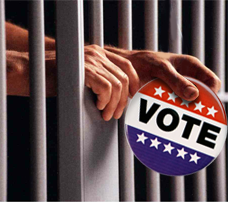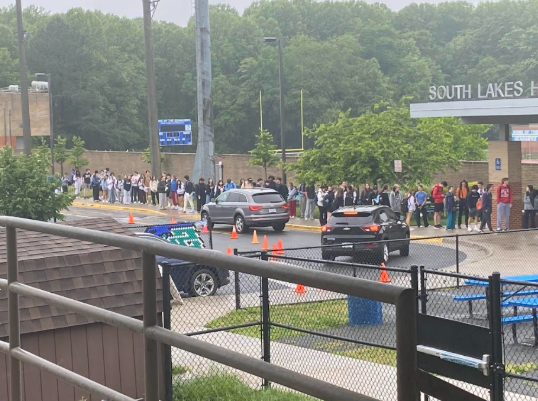Should convicted felons be allowed to vote?

Photo taken from wvtf.org
According to a 2016 report done by “The Sentencing Project,” it is estimated that 6.1 million Americans are denied the right to vote when they’re convicted of a felony. The term “felony disenfranchisement” is used to describe the laws that currently restrict the voting rights of people who have been convicted of a felony-level crime. A felony-related crime can include: aggravated assault, arson, burglary, domestic violence, DUI, fraud, kidnapping, and many others. Due to the severity of these crimes, millions of people are denied the right to vote every year. Our country has been divided on this issue for decades, especially since the choice to exercise felony disenfranchisement laws are solely a state’s decision.
On one end of the spectrum, there are people in support of allowing felons to vote, while the other side believes felons should be denied the right to vote for our future leaders. The ones in support of felon voting rights believe that they are already granted enough rights – such as the ability to buy beer, own property, and marry. They think that if criminals were originally trusted to be released from prison and properly reformed, then they should regain all of the rights that they had as citizens before committing a crime. Opponents of felon voting rights compare felons to the mentally incompetent, children, and noncitizens in regard to their inability to vote.
Should a felon – like someone who killed hundreds in a mass shooting – really have the power to cast a vote that will determine the future of America? After all, there are people that have committed serious crime due to their inability to think clearly or exercise proper judgment (possibly due to mental illness.) There is some real controversy here, especially due to the fact that most felons have committed these acts on purpose.
I believe that in order to vote, felons must go through an extremely difficult process which tests their current mindset and proves that they don’t possess the same intentions they once did. In addition, even though a person is incarcerated for a certain number of years, it’s not always an effective form of punishment. Once they’re out from behind bars, some people even seek revenge against those that put them in prison. Even after spending time in prison, some felons aren’t able to focus on repairing their life and making things right again. Instead, they still possess the dangerous mindset that landed them in prison in the first place.
Ben is a sophomore at South Lakes High School, and this is his second year on the staff of the South Lakes Sentinel. He enjoys boxing, photography, dogs,...















